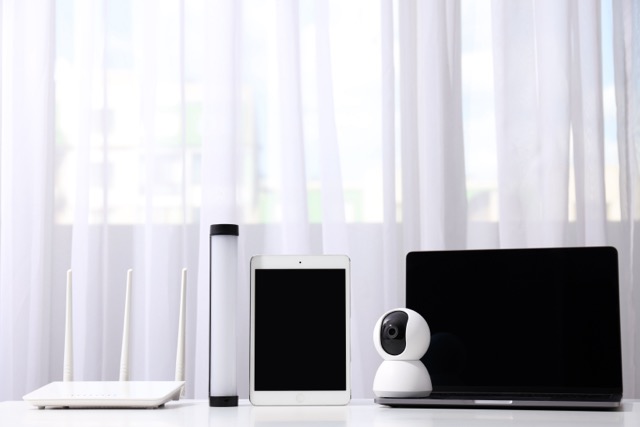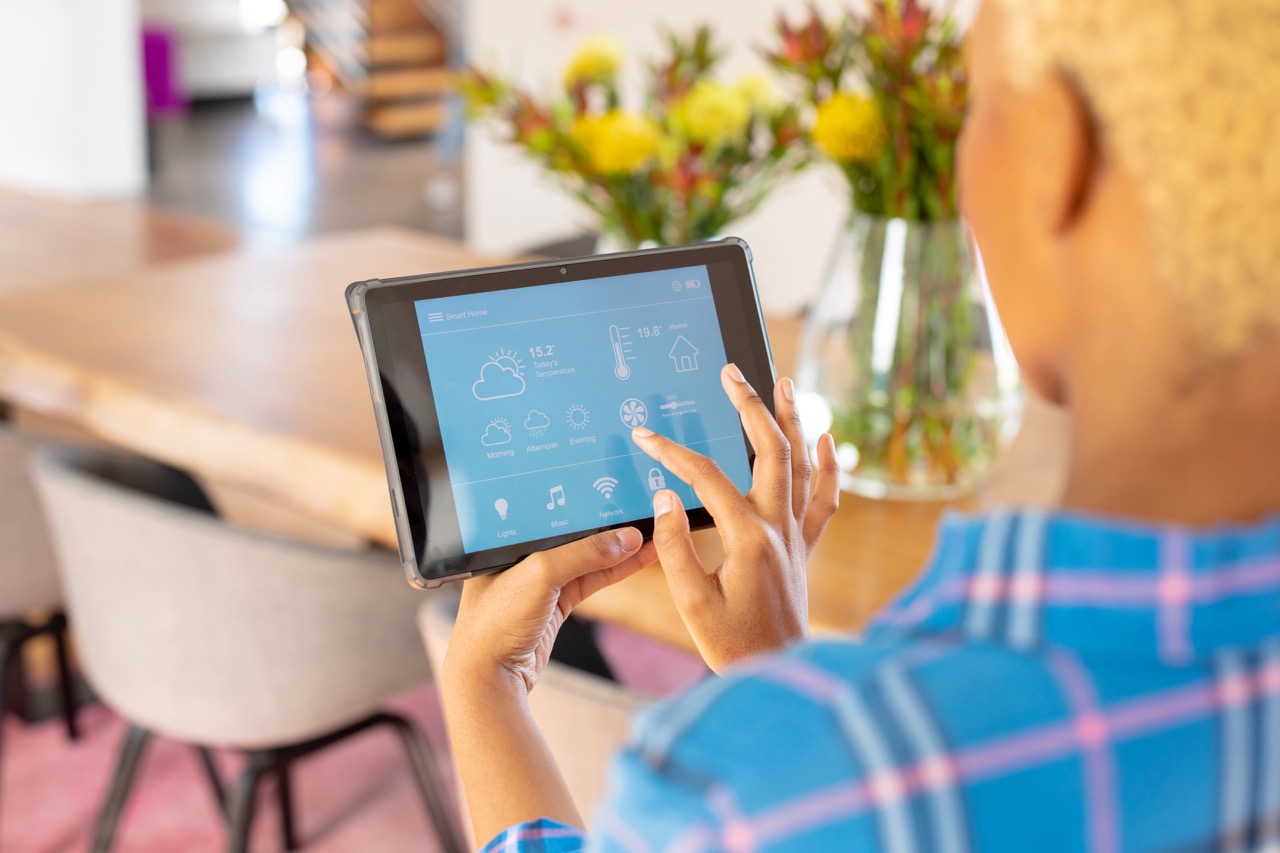In contemporary urban environments, the integration of smart devices is not just a trend, but a pivotal shift in how city dwellers interact with their surroundings. Through the lens of technology, particularly the Internet of Things (IoT) and Artificial Intelligence (AI), urban living is undergoing a transformation that promises greater efficiency, sustainability, and quality of life. This article delves into the multifaceted impact of smart devices on cities, examining their role in enhancing urban efficiency, revolutionizing living spaces, optimizing transportation, reducing waste, and shaping the future of urban landscapes.
Evaluating the Impact of Smart Devices on Cities
Smart devices have become the linchpins of modern urban development. By connecting everyday objects to the internet, they provide a platform for cities to operate more efficiently and responsively. This connectivity not only enables real-time data collection but also facilitates enhanced communication between various city services, leading to more coordinated efforts in managing urban challenges. The impact is profound, ranging from improved public safety and health to more efficient use of resources. Additionally, the deployment of smart technologies helps cities adapt to the changing needs of their populations, ensuring sustainability and growth.
These devices also play a critical role in transforming urban governance. By harnessing the power of big data analytics, city administrators can make informed decisions that are proactive rather than reactive. Smart devices provide insights into patterns such as traffic flow, energy usage, and public engagement, allowing for smarter planning and policy-making. This level of integration results in more transparent and accountable governance, fostering trust and engagement among citizens.
Moreover, the economic implications of smart devices in urban settings are significant. They not only attract businesses looking for technologically advanced locales but also create new job opportunities in tech-driven sectors. This economic boost is complemented by increased operational efficiencies across public and private sectors, making cities more competitive on a global scale.
Enhancing Urban Efficiency Through IoT Integration
The Internet of Things (IoT) is fundamentally reshaping urban infrastructure. Through IoT, devices communicate and operate autonomously, significantly increasing the efficiency of urban systems. For instance, smart lighting systems adjust based on real-time environmental conditions, reducing energy consumption while maintaining safety standards. Similarly, IoT-enabled water management systems can detect leaks and predict water demand, ensuring optimal distribution without wastage.
Transportation is another area where IoT integration brings substantial improvements. Smart traffic management systems reduce congestion by adjusting signal timings based on real-time traffic conditions, easing commuter frustrations and decreasing vehicle emissions. Moreover, parking solutions equipped with IoT sensors can guide drivers to available spots, saving time and reducing traffic caused by those searching for parking.
In waste management, IoT devices streamline operations by monitoring waste levels, optimizing collection routes and schedules. This not only reduces operational costs but also minimizes the carbon footprint associated with waste collection. These enhancements across various sectors underscore the pivotal role of IoT in elevating urban efficiency and sustainability.
Smart Homes: Revolutionizing Urban Living Spaces
Smart homes, equipped with IoT technologies, are at the forefront of transforming urban living. These homes adapt to the needs of residents through automated systems that control lighting, temperature, security, and entertainment devices, creating personalized living experiences. The convenience offered by these automated systems not only enhances comfort but also significantly improves energy efficiency, leading to reduced utility costs and a lower environmental impact.
Beyond convenience, smart homes contribute to enhanced security. Integrated systems can monitor for irregularities, from potential security breaches to smoke or gas leaks, and can alert residents and emergency services immediately. This proactive approach to safety can provide urban dwellers with peace of mind, especially in densely populated areas.
Furthermore, smart homes are increasingly becoming interconnected with broader city systems. For instance, during peak energy usage times, smart home systems can automatically adjust to reduce the load on the city’s power grid. This not only prevents outages but also promotes a culture of energy responsibility among urban residents.
The Role of AI in Urban Transportation Solutions
Artificial Intelligence (AI) is revolutionizing urban transportation systems by making them more efficient and adaptive. AI-driven analytics help in predicting traffic patterns, thereby aiding in the design of dynamic traffic systems that can adjust in real-time to changes in traffic flow. This reduces congestion and enhances commuter experiences. AI is also pivotal in optimizing public transit routes and schedules based on user demand and travel data, increasing the efficiency and accessibility of urban transit systems.
Autonomous vehicles, powered by AI, represent a significant breakthrough in this domain. These vehicles can navigate city streets with minimal human intervention, promising a future with fewer traffic accidents and optimized traffic management. Moreover, AI in electric and hybrid vehicles contributes to reducing the urban carbon footprint, aligning with global sustainability goals.
Furthermore, AI facilitates last-mile delivery solutions in urban areas, using drones and autonomous robots. These technologies ensure efficient, timely, and cost-effective delivery of goods, which is particularly crucial in the fast-paced urban environments where time and convenience are highly valued.
Sustainability Boost: Smart Devices Reducing Waste
Smart devices are instrumental in driving sustainability in urban areas by optimizing resource use and reducing waste. Smart energy systems in buildings dynamically adjust to usage patterns and external weather conditions, minimizing energy wastage. Similarly, smart water meters provide precise data on water usage, encouraging conservation and helping to detect and address leaks promptly.
In terms of solid waste management, smart bins equipped with sensors can indicate when they are full, optimizing collection routes and frequencies. This not only makes waste management more efficient but also reduces the carbon emissions associated with the collection process. The data collected can also be used to improve recycling rates, by identifying the types of waste that are most commonly disposed of improperly.
Moreover, smart agricultural technologies are being integrated into urban environments in the form of vertical farms and rooftop gardens. These innovations use IoT sensors to monitor plant health, optimize water usage, and maximize yield, contributing to local food production and reducing the environmental impact associated with transporting food into cities.
Future Cities: Predicting Urban Trends with AI
The use of AI in urban planning is transforming how cities are designed and managed. AI algorithms analyze vast amounts of data from various city systems, predicting future trends and enabling planners to design cities that can evolve with their populations. This predictive capability is vital for long-term sustainability, as it ensures that cities are resilient to changes, whether demographic, environmental, or technological.
AI also plays a crucial role in simulating urban scenarios, allowing city planners to visualize the impact of potential policies before they are implemented. This can include everything from new public transport systems to housing developments, ensuring that potential issues are addressed proactively rather than reactively.
Looking forward, AI and machine learning will increasingly be relied upon to manage smart cities, making real-time adjustments to city operations based on continuous data flow. This will not only improve the efficiency and livability of urban areas but also help in creating more responsive and adaptive urban environments that can meet the needs of their dynamic populations.
As urban areas continue to grow, the integration of smart devices represents a transformative development in managing the complexities of city living. From enhancing efficiency and sustainability to revolutionizing transportation and residential spaces, these technologies are at the heart of the future urban landscape. Embracing this smart technology-driven approach is essential for cities aiming to remain competitive and livable in an increasingly digital world. By leveraging the power of IoT and AI, cities can not only address today’s urban challenges but also pave the way for a sustainable and innovative future.










